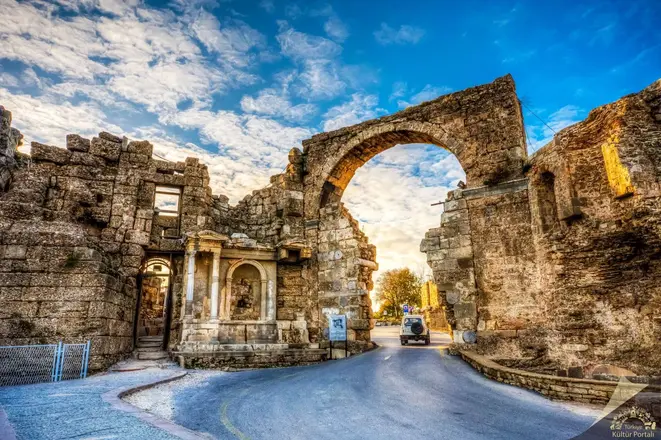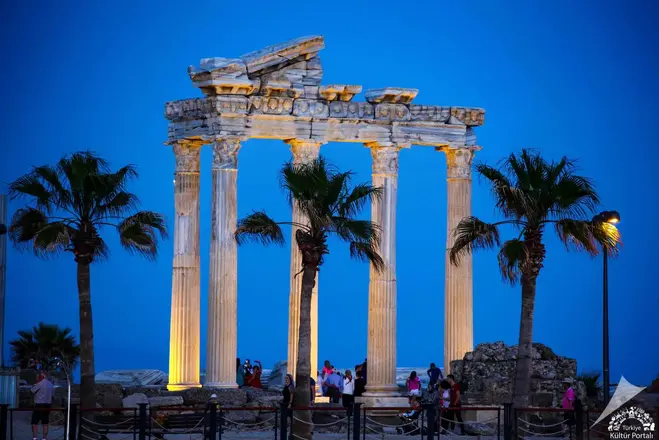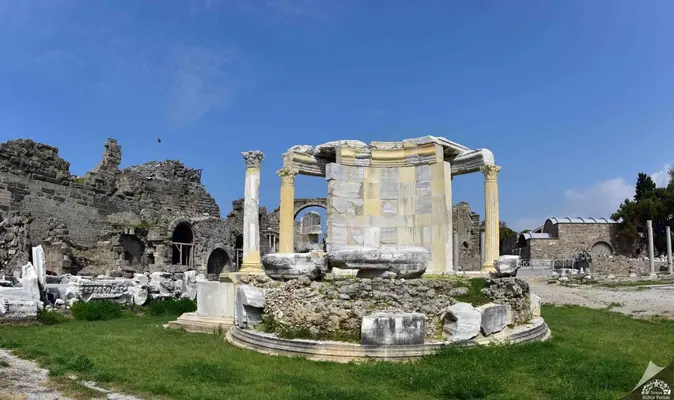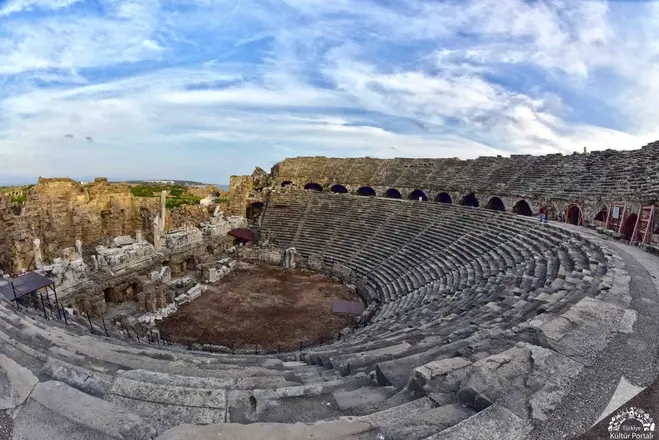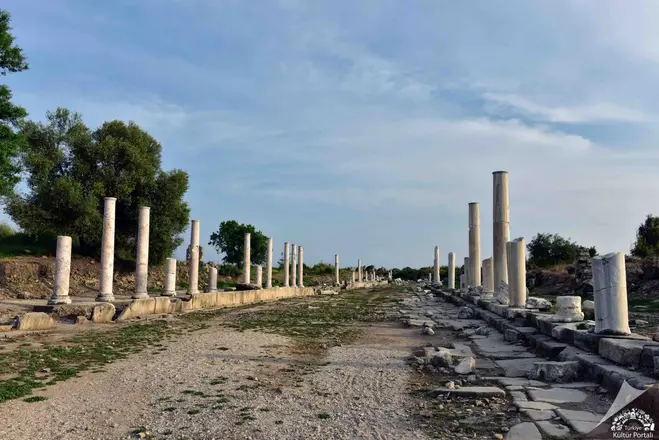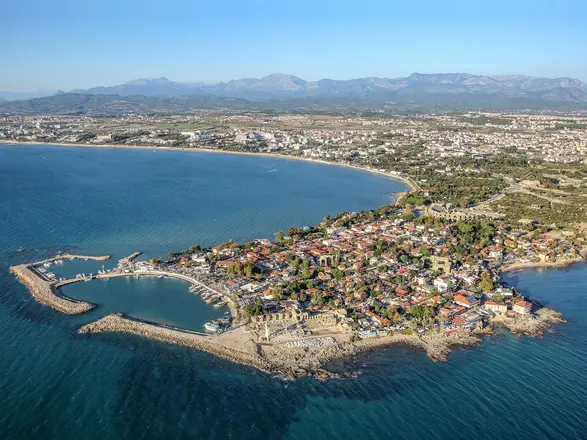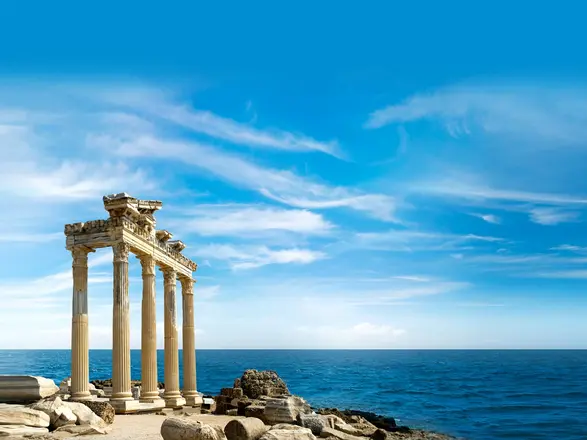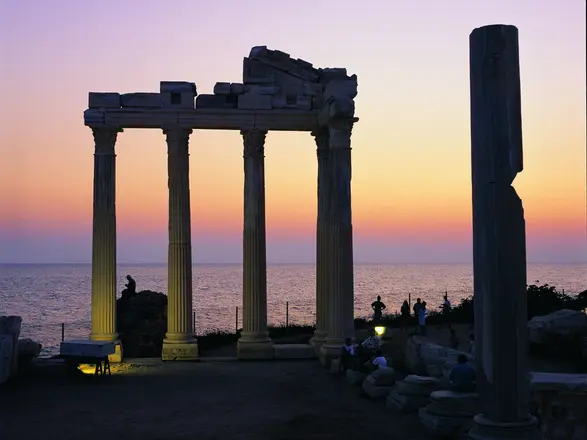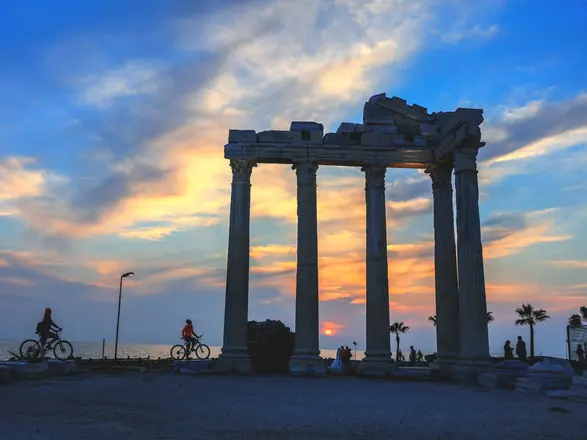Side Ancient City
Description
Side, the most important port city of Pamphylia in ancient times, was built on a 350-400 meter wide peninsula located 80 kilometers east of Antalya and 7 kilometers southwest of Manavgat.
Side became a settlement center in the VII century BC. In the VI century BC, it came under the sovereignty of the Lydian Kingdom together with the whole Pamphylia, and after the fall of the Lydian Kingdom in 547/46, it came under the rule of the Princes. The city preserved its freedom to some extent during this period and minted coins in its own name. During the Anatolian campaign of Alexander the Great (334 BC), Side opened its doors to the Macedonian king without encountering any resistance and later became one of the major coin minting centers established by Alexander. After Alexander's death, Side, which constantly changed hands between the Hellenistic Period kingdoms, came under the rule of the Ptolemies in the III century BC and the Seleucids in 215-189 BC. When the Seleucids were defeated in the war against the Romans, Pamphylia and Side were given to the Pergamon Kingdom according to the Apameia Peace made in 188 BC. However, Side regained its independence after a while and lived one of the brightest periods of its history.
The fact that Antiochos VII, who ascended the throne of Syria in 138 BC and later took the nickname "Sidetes", was sent to Side for education in his youth is an indication of how important a cultural center the city was in the Eastern Mediterranean. This bright period of the city did not last long. Piracy, which started in Pisidia and mountainous Cilicia regions in the 1st century BC, spread to Pamphylia and thus to Side, and the Sidelis, who could not cope with the pirates, had to open their ports and markets to them. Finally, after the Roman Consul Publius Servilius cleared the region of pirates in 78 BC, Side was annexed to the Roman Empire like the other cities of Pamphylia.
After 25 BC, Augustus transformed the Pamphylia region into a province ruled by an official directly under him. After this date, Side is a provincial city under Rome. Side, which had a bright period in the II. and III. centuries AD, looks like an impoverished Christian city in the IV. century. The city, which lived its third and last bright period in the V. and VI. centuries, became the capital of the Eastern Pamphylia Metropolitanate. Byzantine Emperor Constantine Porphyrogennetos (913-959), in his work "De Thematibus", refers to the city as a "nest of pirates", which was weakened by Arab raids in the IXth and Xth centuries. The Arab geographer Idrisi (c. 1150) called Side "Burnt Antalya" and stated that its inhabitants were settled in "New Antalya" two days away.
Selimiye Village was founded by Cretan immigrants in the early 20th century on the ruins of the ancient city of Side, known as a trade and port city. Side, built on a peninsula, extends along a monumental street starting from the main gate of the city, as in other Pamphylian cities. Starting from the "Great Gate" in the North East, the main street runs almost in a straight line along the peninsula, except for the curve in front of the Theater, and ends in a large square near the temples. The second main street of the city runs from the "Great Gate" to the south of the city. Both streets are colonnaded, with colonnaded porticos with Corinthian capitals on either side and a row of shops behind them.
Short Description
Side, the most important port city of Pamphylia in ancient times, was built on a 350-400 meter wide peninsula located 80 kilometers east of Antalya and 7 kilometers southwest of Manavgat.
Warnings
Lorem ipsum dolor sit amet, consectetur adipiscing elit, sed do eiusmod tempor incididunt ut labore et dolore magna aliqua. Ut enim ad minim veniam, quis nostrud exercitation ullamco laboris nisi ut aliquip ex ea commodo consequat. Duis aute irure dolor in reprehenderit in voluptate velit esse cillum dolore eu fugiat nulla pariatur. Excepteur sint occaecat cupidatat non proident, sunt in culpa qui officia deserunt mollit anim id est laborum.

